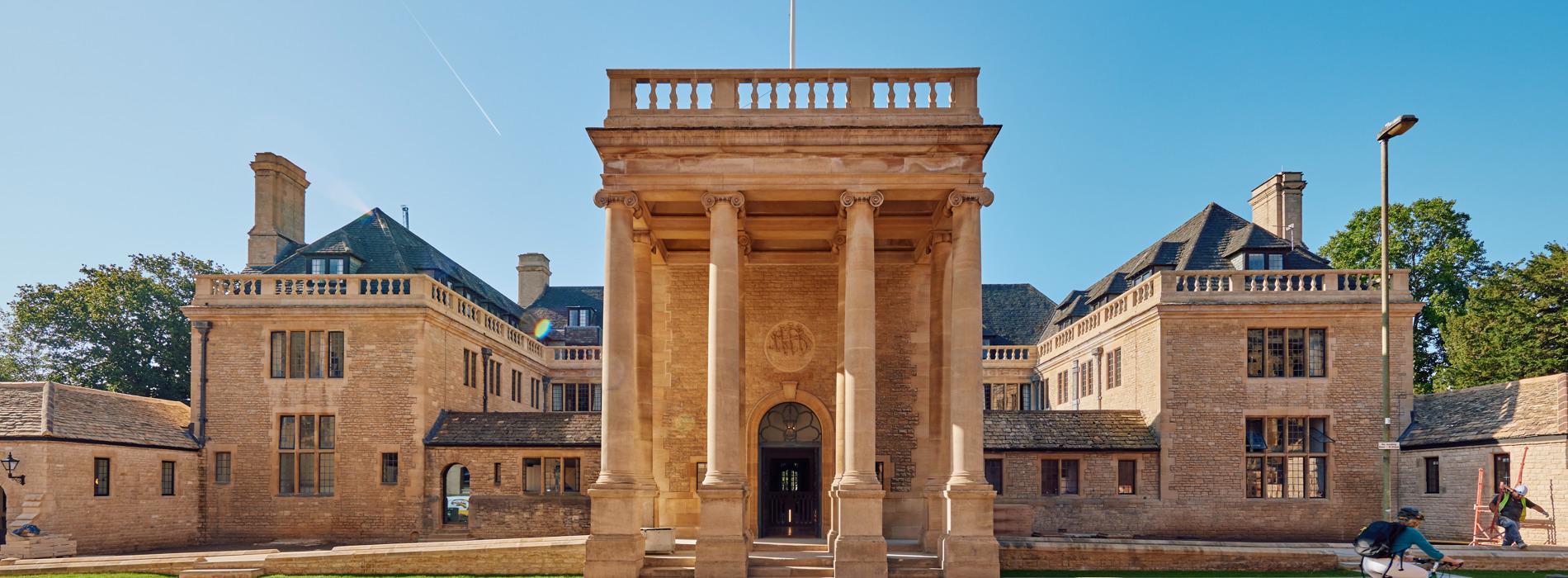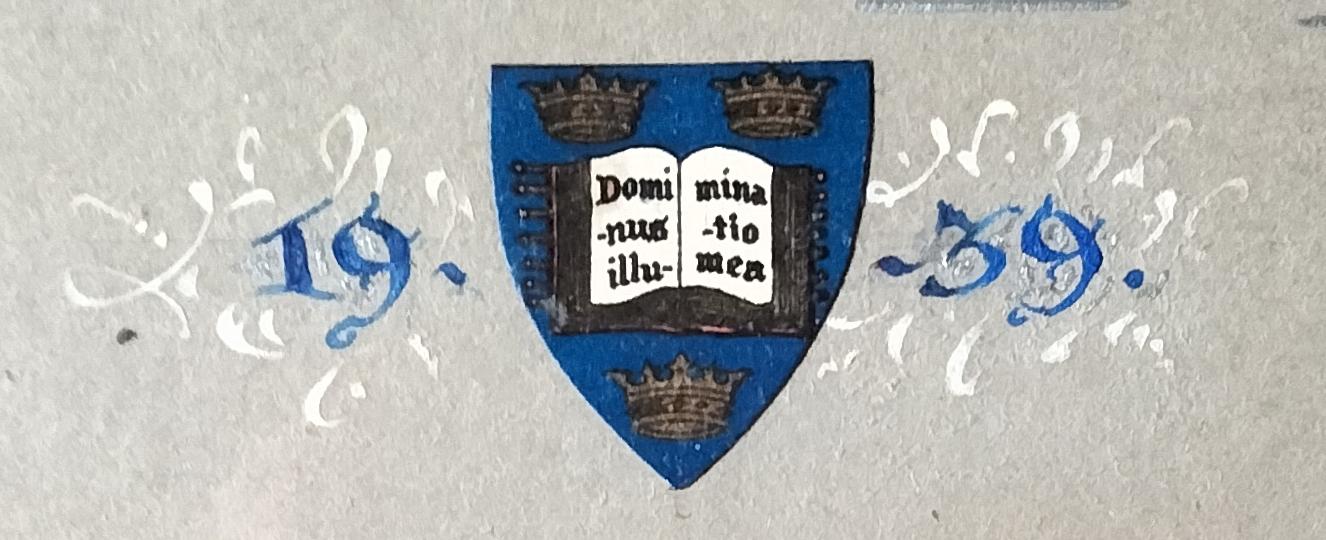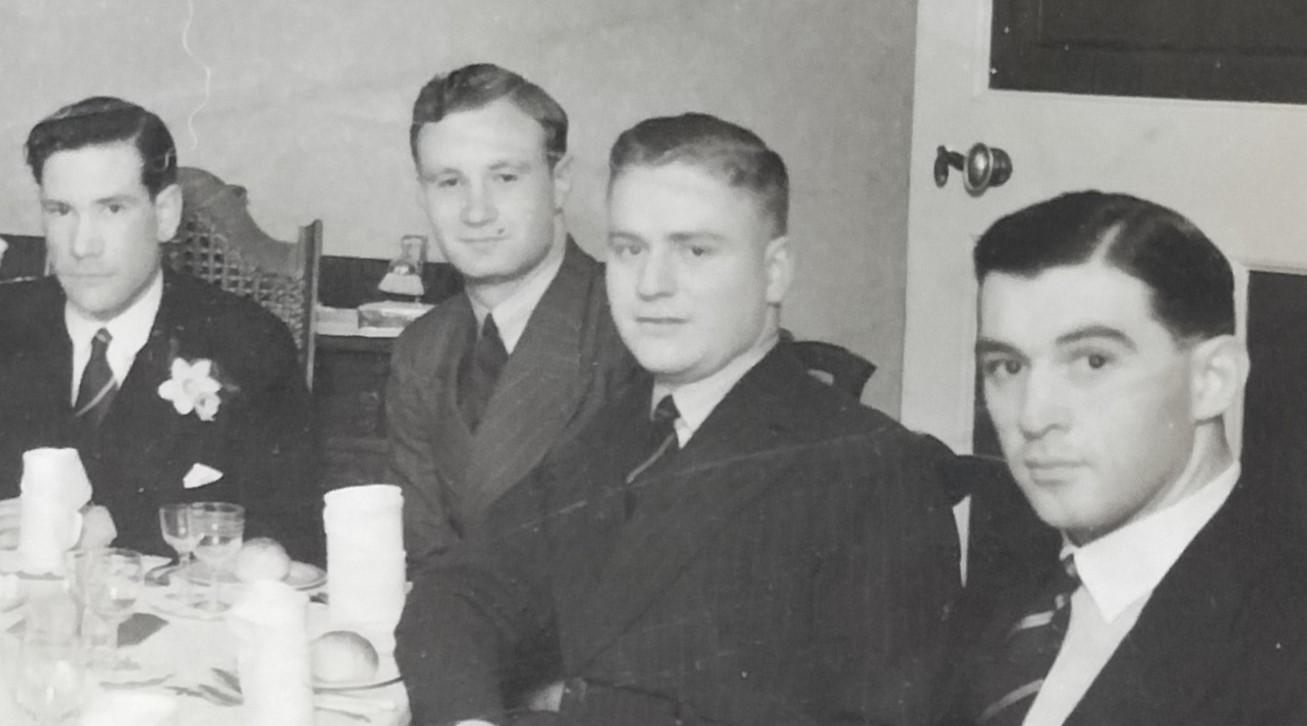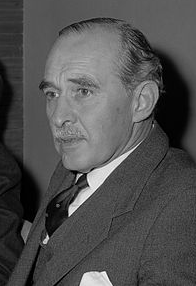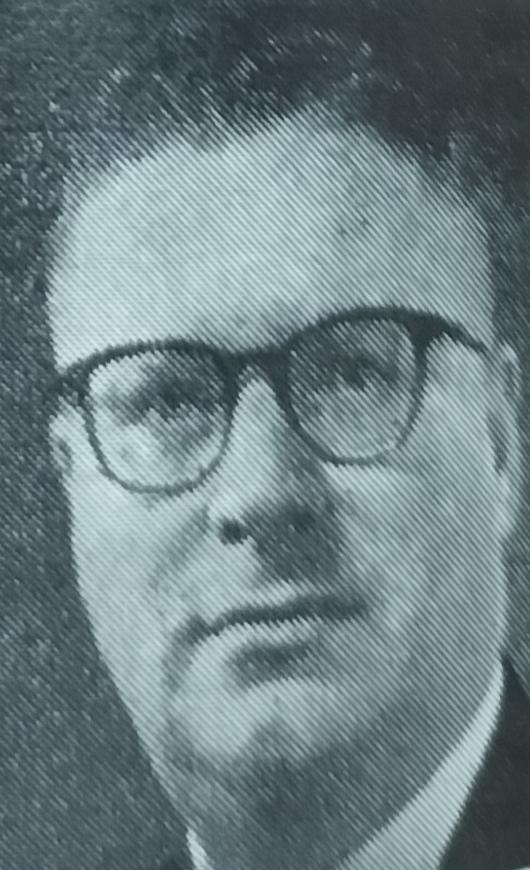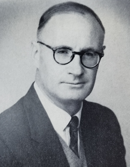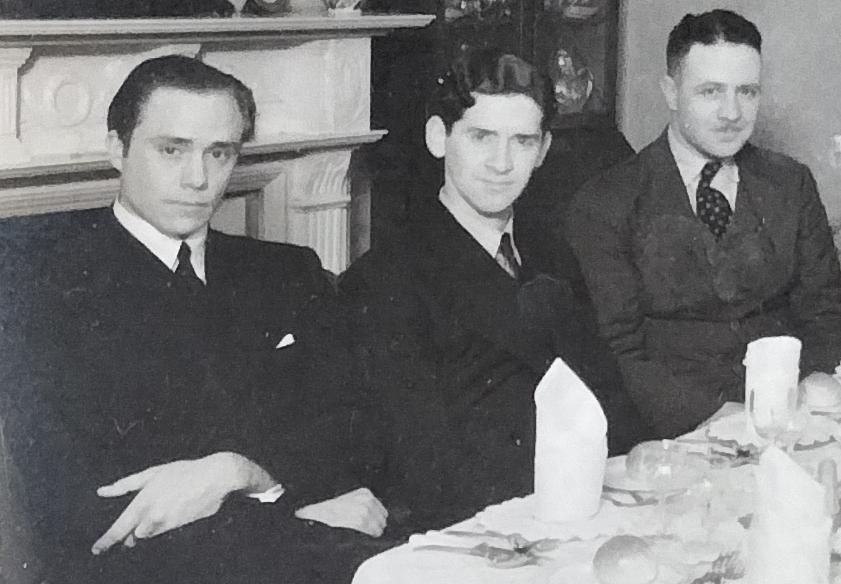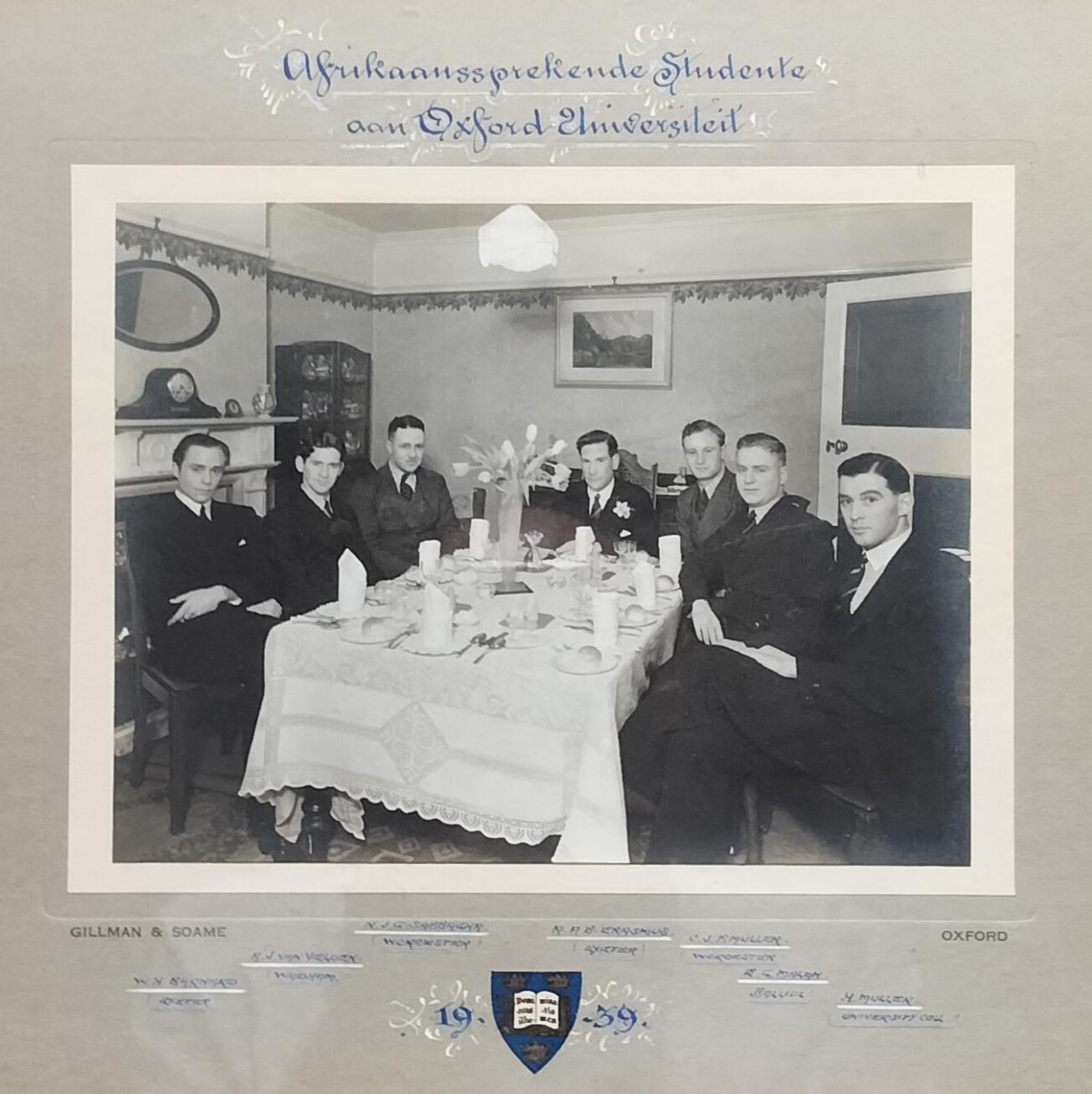
Disclaimer: Any views expressed by individuals and organisations are their own and do not in any way represent the views of The Heritage Portal. If you find any mistakes or historical inaccuracies, please contact the editor.
In constructing this article, I had to ask myself the question: 'Is this article still in line with my primary research topic, namely South African photographic history, or have I become a full-blown genealogist?'.
This article stems from a photograph found in a South African West Coast pawn shop. Without it, this heritage story might never have been told.
The photograph in question is a photograph of seven Afrikaans-speaking Oxford students, captured by an Oxford-based photographer. Photographs by foreign photographers are not included in my ongoing research framework. The fact that all the sitters are South African was however the attraction.
To answer my own question above... a photo historian cannot ignore genealogical aspects presented by any image. The two aspects, namely photographic history and genealogy, therefore clearly overlap. In my ongoing research work, the photograph remains the primary source with the supporting text becoming secondary.
This is the second article where I rely on the photograph to partly reconstruct the narratives of students abroad. The first article related to medical students in Edinburgh (1878), some 50 years before the photograph under discussion in this article (click here to view).
Initially, I was stuck on how to go about researching each of the sitters as only the initials and surnames were presented in the photograph. I was going around in circles and was getting nowhere, until a heritage mentor, Prof. Kathy Munro, suggested: “Think Rhodes Scholarships”. Well, that opened the door. Immediately, I could link all seven sitters to Rhodes Scholarships awarded to them between 1936 and 1939, and with the assistance of genealogical sleuth Niki Tolken, I could soon put some sort of summary together on each of the sitters.
Brief reflection on Rhodes Scholarship
The Rhodes Scholarship, established in 1902 through Cecil John Rhodes' eighth and final will (dated 1 July 1899), is the oldest international graduate scholarship program, with South African students being eligible for scholarships since its inception. Although Rhodes stated that "no student shall be qualified or disqualified for election…on account of his race or religious opinions", the initial selection criteria disqualified female and black South Africans. Both were only awarded full scholarships from 1977 onwards.
The scholarship was founded for two reasons: To promote unity within the British Empire and to strengthen diplomatic ties between Britain and the United States of America. In Rhodes's own words: "I…desire to encourage and foster an appreciation of the advantages which I implicitly believe will result from the union of the English-speaking peoples throughout the world…”
Back then, as today, Rhodes Scholars could study any full-time postgraduate course offered by the university, whether a taught master's program, a research degree, or a second undergraduate degree (with senior status). The scholarship's basic tenure was two years. However, it could also be held for one year or three years. University and college fees were paid by the Rhodes Trust. In addition, scholars received a monthly maintenance stipend to cover accommodation and living expenses. Although all scholars became affiliated with a residential college while at Oxford, they also enjoyed access to the publicly accessible Rhodes House, an early 20th-century mansion with numerous public rooms, gardens, a library, study areas, and other facilities.
Rhodes House (Rhodes House website)
Rhodes, who attended Oriel College at Oxford University, believed the university's residential colleges would be the best venue to nurture diplomatic ties between future world leaders.
The selection criteria stipulated by Rhodes are:
- literary and scholastic attainments;
- energy to use one's talents to the full;
- truth, courage, devotion to duty, sympathy for and protection of the weak, kindliness, unselfishness and fellowship;
- moral force of character and instincts to lead, and to take an interest in one's fellow beings.
Five scholarships were awarded to Southern African students during the first year of the scholarship being awarded, namely 1902.
Four South African boys' schools were mentioned in Rhodes's will, each to receive an annual scholarship, namely the Boys High School in Stellenbosch (today known as Paul Roos Gymnasium), the Diocesan College (Bishops) in Rondebosch, the South African College Schools (SACS) in Newlands, and St Andrew's College in Grahamstown. These have subsequently also been opened to former students at their partner schools (girls' or co-educational schools).
The Oxford University coat of arms and motto: Dominus Illuminatio Mea, meaning The Lord is my light.
Synopsis of each of the seven sitters in the photograph
Each of the sitters became a significant contributor to South African society following their studies abroad. The seven sitters include at least one supreme court judge, two professors and two politicians.
The young men must have been well organised to meet up abroad, in that they were from different intakes and colleges within the Oxford University system. They hailed from five different colleges, namely University, Exeter, Worcester, Balliol and Wadham.
The pending Second World War certainly had an impact on the studies for some of the seven students at the time in that it is recorded that at least one of the students did not complete his research at Oxford University due to the outbreak of the war. The student, Muller, only completed his Ph.D. back in South Africa eight years later.
The seven students in the photograph (see main image) are from right to left: Hilgard Muller, Etienne Malan, Christoffel Muller, Rudolph Erasmus, Nicolas Sabbagha, Abraham van Velden and Willem Barnard.
From right to left: Hilgard Muller (University College), Etienne George Malan (Balliol College), Christoffel Frederick Jacobus Muller (Worcester College) and Rudolph Philip Botha Erasmus (Exeter College) (1912 – 1999)
Hilgard Muller (University College) (1914 – 1985)
Hilgard Muller was born in Potchefstroom in 1914.
After completing his schooling at the Volks Hoërskool in Potchefstroom, he studied at the University of Pretoria. He obtained a Rhodes Scholarship at the University of Oxford (1937), earning a doctorate in law, whereafter he practiced law in Pretoria.
Hilgard became a South African politician (National Party). He was elected to the Pretoria City Council in 1951 and became the Mayor of Pretoria between 1953 and 1955. After relinquishing his city council seat in 1957, Hilgard became an elected Member of Parliament in 1958 and became South Africa’s ambassador in London in 1961. He was eventually appointed Minister of Foreign Affairs after the resignation of Eric Louw in 1964.
Hilgard retired to private life in 1977 and was succeeded by Frederik Roelof "Pik" Botha, who kept the post until multi-racial elections in 1994.
Hilgard has authored several books in English and Afrikaans on ancient history. He was also an honorary Colonel at the Northern Transvaal Regiment.
Hilgard died in Pretoria in 1985.
Hilgard Muller at a later stage in life (Wikipedia)
Etienne George Malan (Balliol College) (1918 – 1996)
Etienne George Malan, son of Gabriel Hercules Theodore Malan and Berlina Roos, was born in Cape Town on 10 October 1918. His father was Professor of Ethics in the Department of Philosophy at the University of Cape Town between 1920 and 1936.
Etienne junior attended Jan van Riebeeck School in Cape Town, whereafter he attended the Cape University. He attended Balliol College in Oxford between 1938 and 1940.
On 19 December 1942, Etienne married Elizabeth Petronella Krige Malherbe in Cape Town. The couple had two sons.
As a journalist, he was also in the employ of Die Suiderstem, a Cape Town-based Afrikaans afternoon newspaper.
Etienne became the editor for the fortnightly National Party newspaper, Die Kruithoring, in 1943. After resigning from the National Party in 1948, he joined the United Party which he served for a considerable period in the Volksraad. It has been recorded that Etienne had to receive stitches to his scalp after being hit by a rock the size of a fist during the 1953 elections. Etienne was also the editor for Ons Blad and Challenge (the United Party’s weekly newsletter) between 1950 and 1953. Between 1957 and 1958, he was the Chief Information Officer for the United Party. He was also the chairperson of the United Party’s Parliamentary group for Information, Posts and Telegraphs. Etienne became an elected Member of Parliament between 1958 and 1970.
Following a 1977 citizen’s application to the Publications Appeal Board to have the censorship of Etienne Leroux’s novel Magersfontein, O Magersfontein! reviewed, Etienne was also one of the three literary censors appointed to review the initial censorship of the book. The joint decision was that the censorship of the novel needed to be lifted.
His recreational activities have been recorded as bridge, chess and modern languages.
Etienne George Malan at a later stage in life (Who's Who of Southern Africa, 1974)
Christoffel Frederick Jacobus Muller (Worcester College) (1916 – 1992)
Born in 1916, Christoffel Frederick Jacobus Muller was named after his grandfather, who was a professor of theology at the Victoria College (later Stellenbosch University).
Christoffel Muller junior matriculated at Paul Roos (Stellenbosch Boys High). His father, Tobias Ballot (Tobie) Muller, who passed away during the 1918 flu epidemic, was a preacher with a PhD in theology and philosophy.
Christoffel junior obtained his MA Degree cum laude (1938), whereafter he attended Oxford University (1938-1939) to complete his PhD in the Great Trek (Groot Trek) under Prof. R. Coupland. Christoffel started as a lecturer at Stellenbosch University in 1945. After further research in South Africa, he obtained his D. Phil degree (cum laude) under Prof. HB Thom at Stellenbosch University (1947).
From 1946, he was the head of the history department at Unisa. In North America, he fulfilled the role as a part-time archivist (1951-1954) and in Europe, as a Nuffield Fellow (1956-1959), he conducted extensive research on 18th and 19th- century South African historical themes. He was also the editor of A Select Bibliography of South African History (1966).
Although Christoffel held a Rhodes scholarship (1938-1939), he ironically indicated during an interview that he did not study in Europe. With this, he probably meant that he did not complete his studies at Oxford University in that the Second World War broke out at the time and that he could not return following the outbreak of the War to complete his studies.
Christoffel became an acknowledged authority on the Great Trek.
Christoffel retired from Unisa on 31 August 1979. He was also a keen tennis player.
Christoffel Muller - at a later stage in life - photograph from the book dustcover Five Hundred Years - A History of South Africa. Some of his initials in the Oxford photograph have been swapped around (CFJ to CJF).
Rudolph Philip Botha Erasmus (Exeter College) (1912 – 1999)
Rudolph Erasmus was born in Petrusburg (Orange Free State).
From the age of 5, “Dolfie” (Dolf) was raised by his uncle and aunt on a farm in Fauresmith.
Rudolph attended Grey University College (later to become the University College of the Orange Free State - UCOVS). After his studies locally, he was employed briefly in the Educational Department’s administrative department between 1934-35.
With a Rhodes scholarship in hand, Rudolph departed for England in September 1936. Initially, he studied Anthropology and Geography but later switched his study direction to law. In 1937, he was elected the chairperson of the Exeter Law Society.
During his 3rd year at Exeter, Rudolph started his D Phil thesis titled “The Communal Idea in Bantu Law with specific reference to the Baxananwa”. Due to the outbreak of the Second World War, he could not complete his oral exam on the subject. A degree was, however, conferred on him in 1944 for this work.
On his return from Oxford, Rudolph was briefly employed by the Department of Social Welfare (1939-40), whereafter he served as an editorial staff member of Die Vaderland (1940/41) followed by a brief stint at the Bureau of Information (1942-44). On 25 June 1943, Rudolph married divorcee Comfort Nel Lubbe (Nee Visser). He resided in Pretoria at the time.
A year later, Rudolph was admitted as an advocate in the Orange Free State in 1944.
By 1949, Rudolph was divorced from Comfort and married Susanna Louisa Geldenhuys on 9 March 1949 in Kroonstad. He resided in Bloemfontein at that point. Rudolph had 4 children.
He was admitted to Queens Council in 1954.
In 1960, Rudolph was appointed acting judge in Kimberley, followed by a permanent appointment in 1962. From 1996, he was the chairperson of at least nine judicial commissions, with the Erasmus commission (1978-79) being the most prominent of them all.
The 1978-79 Commission of Inquiry investigated alleged irregularities in the former Department of Information. Its mandate was to evaluate evidence from various sources and extend the enquiry into new areas uncovered during the investigation.
The most important finding of the commission, headed by Rudolph (then a Supreme Court Judge), was that Vorster was fully aware of a covert operation by his former Minister of Information, Cornelius Mulder, to spend tens of millions of dollars in an illegal and secret effort to influence the news media. Retracting from their preliminary report that had exonerated Vorster, the commission concluded that he had lied in sworn testimony concerning his role in the whole affair. One witness testified that he had once asked Vorster whether the government itself was being blackmailed by Eschel Rhoodie, one of Mulder's key aides. "A thousand percent," Vorster is said to have replied. "He holds my ministers' political life in the hollow of his hand."
After the release of the report on South Africa's "Muldergate" scandal, Vorster abruptly resigned as his country's head of state, his long political career ending in disgrace. Vorster's last official act as President was to receive the report that described his humiliation and led directly to his resignation.
Rudolph also authored a novel, Regter (1948).
The name Rudolph Philip Botha Erasmus is relatively common in South Africa.
From right to left: Nicolas Johannes George Sabbagha (Worcester College); Abraham Julius van Velden (Wadham College) and Willem Hendrik Barnard (Exeter College)
Nicolas Johannes George Sabbagha (Worcester College) (1914 – 1992)
Nicolas (“Taat”) Sabbagha was born on 12 December 1914.
After completing his school career at Grey College, he continued his studies at the Grey University College (later to become the University College of the Orange Free State - UCOVS), where he obtained his BA degree with English and Botany as his major subjects. After completing his BA degree, he studied at Oxford University for two years (1937 to 1939), where he obtained his MA degree in English language. He returned to South Africa at the start of the Second World War and continued his studies in English language at the University of Cape Town (UCT). After a brief spell as lecturer at Grahamstown University (Rhodes), he moved to Pretoria, where he was appointed as senior lecturer in the department of English at the University of Pretoria (TUKS) in 1944. In 1961, he was appointed Associate Professor under Professor Peter Tidlestadt, and in 1964, he was appointed Professor and Head of the Department of English. He was a founder member of the English Academy of South Africa, and together with Professor Guy Butler of Rhodes University, formed the Council of South African English for the Oxford Dictionary. He retired from his position in 1976.
Nicolas married Delina Johanna Pretorius (1921 – 1956) in Bloemfontein in 1956 at the age of 41. He resided in the Residency Hotel in Pretoria at the time and was recorded as being a lecturer. Delina died of a heart attack at the age of 35, some 6 months after they got married.
Two years later (1958), Nicolas married a teacher, the widowed Marguerite Stander (nee Rademeyer) on 17 May 1958 in Bloemfontein. He resided at the Van Riebeeck Hotel in Pretoria at the time of this marriage.
Indications are that Nicolas and Marguerite had no children.
Nicolas also did translations and book reviews as well as co-authored the book: Afrikaanse Spreekwoorde en Uitdrukkings met die Engelse Ekwivalent with Kritzinger (1973). He served on various educational, commissions, advisory boards and selection committees.
While at the Publications Appeal Board, Nicolas coined the following dictum, which became a standard stance by a tribunal, as it relates to freedom of speech:
The truths in the film should be allowed to speak for themselves, as also should the clichés, the striving for emotional effect, and the biases, of which there are many obvious ones” (Cry Freedom - Appeal Board Case 151/81).
He was seemingly a keen art collector.
Nicolas died in Bloemfontein in 1992.
Abraham Julius van Velden (Wadham College) (1917-1999)
Born on 25 December 1917, Abraham Julius van Velden attended Paul Roos (Stellenbosch Boys High School), whereafter he attended Stellenbosch University. While at Oxford (1938-1940), he attended Wadham College. His father, also AJ van Velden, was a farmer.
It is also recorded that Abraham Junior was a news commentator and correspondent for the BBC between 1940 and 1945.
Initially a government employee, he was employed by the South African Department of Commerce and Industry between 1946 and 1959. In 1948, Abraham completed his LLB in Pretoria.
At the time of his marriage to Elfreda Joan de Villiers in June 1949 in Pretoria, he was recorded as being an advocate. It is not known at this point what happened to Elfreda, as according to records, Abraham married Judith Monro in September 1971.
From 1959 onwards, Abraham entered the financial world. First, he was attached to Syfrets Trust (1959 to 1968), the last three years as director. In 1969, he went into a stockbrokerage partnership with McKie and Bros. Later, he was to become the director for VH Simmons.
Abraham was an avid sportsman (golf, tennis & skiing).
Willem Hendrik Barnard (Exeter College) (1915-1994)
Willem Hendrik Barnard, son of farmer Willem Hendrik Barnard and Maria Magdalena Elizabeth Stander, was born on 20 April 1915.
Willem completed his schooling in the Orange Free State (Ventersburg and Grey College) before attending Exeter College in Oxford (1937-1940).
Most of his career was spent as the assistant registrar for the Witwatersrand University Medical School (1942-1960). Willem became the registrar of the South African Medical and Dental Council in 1960. It is not known how long he held this position for.
He married Gertruida Jeanette Kemp on 09 April 1947. The couple had one son, also Willem Hendrik, who was born in 1953.
Willem Henrik senior died on 29 Aug 1994 in Pretoria.
Closing
There is no doubt that the information gathered above are only snippets of information as it relates to the seven individuals who appear in the photograph. The biographical information collated can most certainly be expanded upon by family members, genealogists and academia.
Photographs are often overlooked as paper ephemera. The important aspect for me as a photo historian is that another photograph has been “rescued” and interpreted at a high level, adding potentially valuable historical narratives.
Special Acknowledgement
Niki Tolken for her assistance in filling in the gaps on some of the individuals above. Niki is attached to the Western Cape branch of the Genealogical Society of South Africa.
Main image: Photograph by Oxford-based photographer showing Afrikaans-speaking students who each obtained an Oxford bursary. From right to left are: Muller, Malan, Muller, Erasmus, Sabbagha, van Velden & Barnard
About the author: Carol is passionate about South African Photographica – anything and everything to do with the history of photography. He not only collects anything relating to photography, but also extensively conducts research in this field. He has published a variety of articles on this topic and assisted a publisher and fellow researchers in the field. Of particular interest to Carol are historical South African photographs. He is conducting research on South African based photographers from before 1910. Carol has one of the largest private photographic collections in South Africa.
Sources
- Argus. (1974). Who’s who of Southern Africa – Including Mauritius and incorporating South African Who’s who and the Central African Who’s who. Combined publishers. Johannesburg
- Familysearch.org
- Laros, T. (2018). Literature and the Law in South Africa 1910 – 2010: The 1978 case of Etienne Leroux’s Magersfontein, O Magersfontein! The Fairleigh Dickinson University Press Series in Law, Culture, and the Humanities. (https://core.ac.uk)
- Potgieter, I. (1999). Consultus - We remember – Wyle Regter Rudolph Erasmus (www.gcbsa.co.za/law-journals/1999)
- Time. (1979). South Africa: Vorster Quits – Judge RPB Erasmus (https://content.time.com)
- Tolken, N. (May 2025). Email communication between Niki Tolken and Carol Hardijzer
- University of the Free State. (Extracted February 2025). Judge RPB Erasmus. (www.ufs.ac.za)
- Unknown. (Extracted February 2025). Rhodes Connection - Scholarships awarded to Paul Roos students (https://paulroos.co.za/rhodes-connection)
- Unknown. (Extracted February 2025). Rhodes Scholar Database (www.rhodeshouse.ox.ac.uk)
- Unknown. (Extracted February 2025). Sabbagha. (www.myheritage.com)
- Unknown. (Extracted February 2025). 1978-79: Commission of Inquiry into Alleged Irregularities in the Former Department of Information. (https://sabctrc.saha.org.za/reports/volume1/chapter13)
- van Zyl, M.C. (1980). Professor C.F.J. Muller: Die einde van 'n era, 12:1-2, 1-4 (www.tandfontline.com)
- Wikipedia (extracted March 2025). Hilgard Muller (wikipedia.org)
- Wikipedia (extracted March 2025). Rhodes Scholarship (wikipedia.org)
Comments will load below. If for any reason none appear click here for some troubleshooting tips. If you would like to post a comment and need instructions click here.

